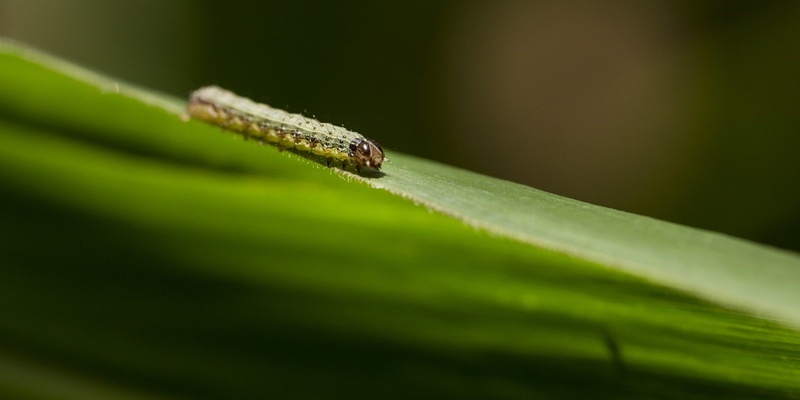Fall Armyworm, a global threat to prevent: New webinar series kicked off
Posted on Thu, 28 Oct 2021, 09:05

©FAO/ Lekha Edirisinghe
Rome, 28 October 2021. Fall armyworm’s inexorable spread has become a global concern. This transboundary pest is now affecting more than 70 countries worldwide, and putting others at high risk of incursion. FAO and the International Plant Protection Convention (IPPC) have developed global guidelines on prevention, preparedness and response to help countries prevent the spread of fall armyworm and minimize its damage to food security, plant health, and livelihoods.
To present the actions countries can take to get prepared for possible introduction of this pest, the IPPC Secretariat organized the webinar series “Fall armyworm, a global threat to prevent”, with the support of the FAO/IPPC Technical Working Group on fall armyworm. The first webinar of the series was successfully held on 22 October 2021 with the participation of over 120 participants from Asia, Africa, Europe, and the Pacific region to introduce the new prevention, preparedness, and response guidelines for Spodoptera frugiperda, commonly known as fall armyworm.
Sarah Brunel, Implementation and Facilitation Unit Deputy Lead at the IPPC Secretariat and moderator of the session, highlighted that the IPPC Secretariat is mobilizing expertise to contribute to the prevention of fall armyworm and limit its spread to countries where it is still absent or of limited distribution. She also stressed the importance of raising awareness about this global threat and its potential devastating damages to global food security. The Chairperson of the FAO/IPPC technical working group, Chris Dale, provided an overview of the guidelines and the work the technical working group on quarantine and phytosanitary measures is doing to minimize the spread of the pest within the framework of the FAO global Action for Fall Armyworm Control.
A detailed description of the taxonomy and morphological characteristics of the pest was presented by Tek Tay, Senior Research Scientist at CSIRO’s Health and Biosecurity Business Unit. He highlighted that the species Spodoptera frugiperda can rapidly spread across borders due to its ability to fly for long distances and the possibility of being spread worldwide through international travel and trade, and that the genus Spodoptera counts at least 31 species.
Local phytosanitary services and plant protection organizations play a crucial role to prevent the spread of fall armyworm through the development of preparedness and response plans, the implementation of pest risk analysis, surveillance and other measures, as explained by Mariangela Ciampitti, Head of Crop Protection Phytosanitary Service at the Lombardy region, Italy. Mekki Chouibani, Executive Director of the Near East Plant Protection Organization, presented the regional plant protection organizations’ role in harmonizing phytosanitary measures, exchanging information, building capacities, and facilitating safe trade at the regional level.
Information sharing and stakeholder engagement are also key to combat a global threat like fall armyworm. Allison Watson, Sustainability Systems and Partnerships Specialist at the ASEAN Action Plan on Fall Armyworm Control, provided an overview of the available resources countries and stakeholders can consider when dealing with FAW prevention and preparedness. These resources and materials are freely accessible on a dedicated board.
Further information about this webinar, including the questions and answers, will be posted online soon.
The IPPC Secretariat and the Global Action for Fall Armyworm Control thank the European Union for the financial support required to undertake this activity, translate the guidelines in different languages and provide interpretation during the webinar in French, Arabic and Russian.
Register to the next webinars on fall armyworm!
- 19 November: Fall armyworm prevention and preparedness
- 10 December: Fall armyworm response and communication

